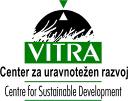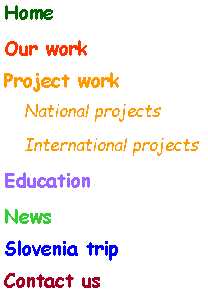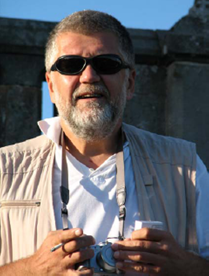|
ŠKIS—Possibilities and opportunities |
|
To what extent can we influence future events? Who is the director, or are we the ones who are directing, are we the actors or the spectators? How will we be able to perform (accept, understand) individual roles that we have been given, that we have chosen or have only adapted to? Do we understand the main roles and the main actors correctly, will we participate in the creation of the story, will we direct or be directed?
All the uncertainty turned into one big answer during the performance. Yes. The script was right, the actors were the best and they were well prepared, the location and the scene (there is always sunshine after rain) were amazing, the programme escalated from one act into the other, and the applause after each act (lecture, thanks with presents or daily evaluation) was a routine, pleasant for the ear.
The origins of SKIS go back to the year 2002/03 and to the first generation of students of Izraz Institution. At that time, we already applied (without success) for LdV funds. To be honest, there was not much interest among the students. Last spring, during the European Year of Labour Mobility, we felt that the time was right for SKIS. CMEPIUS gave a very good evaluation of the project, and there were as many as 63 preliminary registrations, which was promising.
I am pleased to say that the activities of the group in all the stages (preparation, realisation, conclusion) were more than excellent. Every individual did his or her best to perform his or her role as perfectly as possible. We did not neglect the pleasant moments of our cooperation, either. Optimism is reflected by the comments on the small bedrooms (so tiny that there is not even room for snoring), preparation of meals (this reminds me of real student life), and, of course, all the intensive discussions in the evenings and nights.
Different roles require a choice. I performed several: initiator, organiser, performer, lecturer, student, driver... but above all, participant. I am writing the introduction as organiser, the report as participant, the thesis as someone enthusiastic about the cooking skills of the utility workers. All the other roles - the role of lecturer in particular - lag behind. I understand the whole collection as a multi-level conclusion of one story, as well as motivation for new actors in new stories. I am also writing it as an incentive for organisations, institutions and individuals to become active in the mentioned opportunities. Efficiency, usefulness and other benefits of international cooperation are evident, and it is not that difficult to find appropriate resources.
It is relatively easy to access Brussels and domestic resources for (co)financing of educational projects. We begin with an idea and the basic plan (who, where, how, whom, for whom). For educational programmes, we determine the target group, the contents of the training, as well as the training methods. Then, we search for suitable tenders, we read the tender documents thoroughly, we write the project and submit it (correctly) to the tender committee. When the project is approved, the preparation of the group begins, which usually involves three stages (before, during and after the realisation). This is a relatively simple recipe for realisation of exchange, as described above, and can be easily learned. It is true, though, that the learning time can be long, filled with failed projects, lost opportunities, faded partnerships... In one word: we can all read a recipe in the cookbook, but not all of us can cook (well). The taste of the food depends on the knowledge, skills, experiences... of the cook. The same goes for all jobs, including the preparation, realisation and conclusion of every project. This is why in today’s complex world, where quality information is hard to obtain, the number of organisations specialised in preparing projects is increasing.
Our thanks go to the main actors in this story: to the mentors (participants); to Anita Jelen-Žmitek, Director of Izraz Institution; to Libby Urquhart of ARCH Network (our partner in Scotland), and, naturally, to CMEPIUS as national coordinator of LdV projects
We have brought one act to the end. Others will follow, which can include the exchange of students and teachers, shorter or longer visits, practical work, joint projects - be it with the Scotts - as sweet as their scones - or with other countries.
Bojan Žnidaršič, VITRA Cerknica |


|
Let us be realistic – let us plunge into action Slovenian accession to the EU enhanced international activities in terms of contents, timing and financing. Possibilities and opportunities – so realistic, yet so intangible – arise again and again. When we notice them, we transform them into targets and projects. Our collection deals with utilities and with the 12 days’ exchange within the Leonardo da Vinci programme (LdV). Let us look at what, where, who, how... our cooperation can be intensified. The good part of the exchange is that it is bilateral. It makes sense to import and export good practices (and keep bad practices as a warning).
During our preparations for SKIS, we could not help drawing parallels with theatre or cinema, especially in the form of dilemmas, questions and vague answers. |
